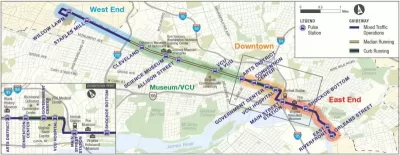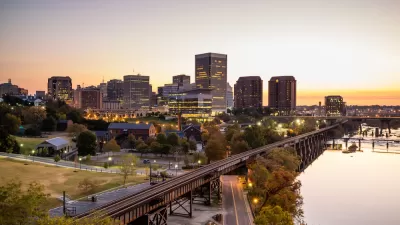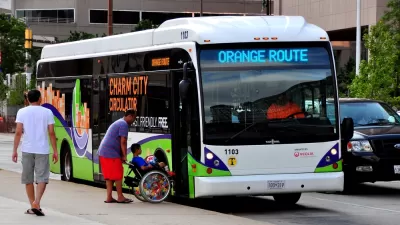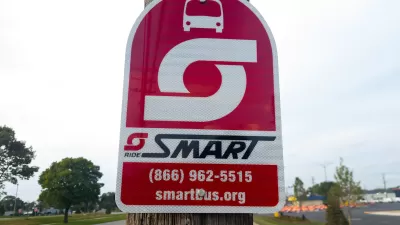Residents charge the Greater Richmond Transit Company (GRTC) with making service worse for low income residents.

The Greater Richmond Transit Company (GRTC) undertook a large-scale overhaul last year, and some think the new system unduly burdens poor residents. A report from Virginia Public Radio's WVTF spoke with resident Carmen Terrell who now faces a longer commute. "A recent redesign of the entire region’s bus system streamlines many routes, and includes a new frequent reliable line called the Pulse. But for many, including Terrell, it means more transfers and longer walks," Mallory Noe-Payne reports for WVTF.
The agency is now being sued on civil rights grounds because, plaintiffs claim, the redesign is unfair to many poor and black Richmond residents. For their part, GRTC representatives point out they have created more frequent service, and increased accessibility of the city. According to GRTC, any routes have seen decreased headways and where routes were cut or changed it was because the ridership there didn’t justify the service. At the same time, "Research out of Virginia Commonwealth University confirms that many low-income residents were negatively affected by the redesign." The same report also says bus routes expanded overall access to the system. Access improvements mean more people can get to points of interests more quickly and more access could make the service more attractive to “choice riders” who could pick bus transit over some other option.
The question: Did the GRTC sacrifice the service quality for those who need transit the most, to get those improvements?
The reviews of the GRTC bus system were much more positive earlier this year, when GRTC was reporting improved ridership figures.
FULL STORY: Bus Redesign Prompts Question: Who is Public Transportation For?

Planetizen Federal Action Tracker
A weekly monitor of how Trump’s orders and actions are impacting planners and planning in America.

San Francisco's School District Spent $105M To Build Affordable Housing for Teachers — And That's Just the Beginning
SFUSD joins a growing list of school districts using their land holdings to address housing affordability challenges faced by their own employees.

The Tiny, Adorable $7,000 Car Turning Japan Onto EVs
The single seat Mibot charges from a regular plug as quickly as an iPad, and is about half the price of an average EV.

With Protected Lanes, 460% More People Commute by Bike
For those needing more ammo, more data proving what we already knew is here.

In More Metros Than You’d Think, Suburbs are Now More Expensive Than the City
If you're moving to the burbs to save on square footage, data shows you should think again.

The States Losing Rural Delivery Rooms at an Alarming Pace
In some states, as few as 9% of rural hospitals still deliver babies. As a result, rising pre-term births, no adequate pre-term care and "harrowing" close calls are a growing reality.
Urban Design for Planners 1: Software Tools
This six-course series explores essential urban design concepts using open source software and equips planners with the tools they need to participate fully in the urban design process.
Planning for Universal Design
Learn the tools for implementing Universal Design in planning regulations.
Smith Gee Studio
City of Charlotte
City of Camden Redevelopment Agency
City of Astoria
Transportation Research & Education Center (TREC) at Portland State University
US High Speed Rail Association
City of Camden Redevelopment Agency
Municipality of Princeton (NJ)





























